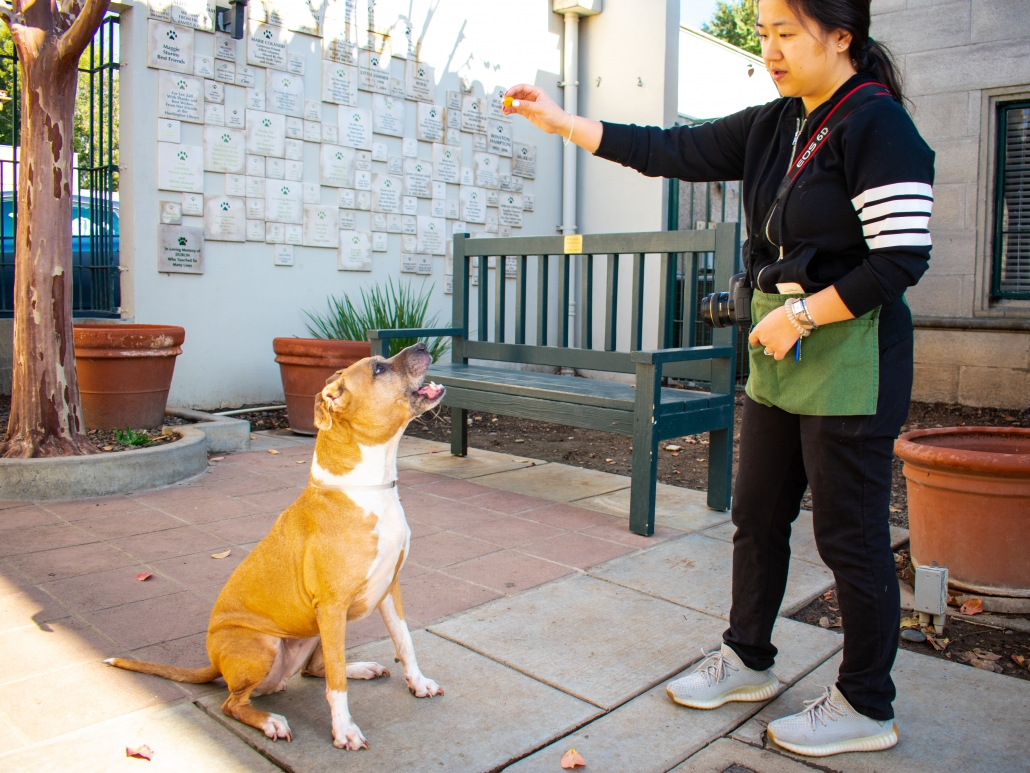You Can Teach an Old Dog New Tricks


Training a dog takes time and patience. Although the city is slowly re-opening with new restrictions, the majority of us are still spending more time at home than we did prior to COVID-19. This summer might be the perfect opportunity to spend time teaching your dog some new tricks or working on a behavior issue like excessive barking (which you had no idea your dog did before you started working from home). No dog is too old to learn. Teaching your dog fun tricks provides mental stimulation and keeps boredom at bay- for both you and your dog!
Here are a few tips to remember when training your dog:
Be consistent. This is why having time works to your advantage. Dogs need repetition to learn. Although we’d like to think our dog speaks our same language, behavior specialists believe they do not. They understand sounds. “Sit” and “down” sound very different to a dog, so always use the same word for the command. Having a small healthy treat in hand to coax your dog to “sit” or lie “down” is a great way to guide your dog into the preferred action and to reward your dog as they learn the commands.
Train without anger or frustration. Dogs pick up on our emotions and will not enjoy learning new behaviors if we are displaying frustration. Make it fun. This is also a good rule to remember if your dog slips out the front door. If you call your dog back and then reprimand them, they likely won’t come back when you call them. They will learn it only leads to a scolding, and who wants a scolding?! Instead greet them with love and enthusiasm and watch them run back to you each and every time you call.
Praise success. In addition to a small treat, dogs love praise. Offer an enthusiastic “good boy” or “good girl” and watch their tails wag with joy. Dogs ultimately do want to please us.
Training a dog to speak is a fun trick, and teaching “quiet” can help solve a common problem of excessive barking. For these commands, have some small treats ready. The rewards should be immediate and highly desirable, like small pieces of hot dogs or chicken. Many dog trainers suggest starting with the “quiet” command. Create a situation where your dog will bark, such as ringing the doorbell. Get your dog’s attention, and as soon as they stop barking immediately say “quiet” and reward them. This command takes a lot of repetition. As you repeat the steps, gradually wait slightly longer before giving a treat to reward being “quiet.” Before you know it, you can use the command “quiet” while your dog is barking, and they will learn the cue. You can use the same technique with the “speak” command.
Currently Pasadena Humane is offering Virtual Behavior Consultations if you need to discuss any behavior or training issue. A Virtual Behavior Consult is a 30-minute, one-on-one, online consultation with one of our Animal Behavior Specialists via Zoom or other virtual communication platform. You can discuss behavior and training issues you are having with your pet and they will help you develop a training plan to get you and your pet heading in the right direction. Virtual behavior consults are available for dogs, cats, and critters- including rabbits and rodent species (guinea pigs, rats, mice, hamsters, etc.). Cost is $45 per 30-minute consultation. Socially distanced puppy classes will resume in July. More in-person classes will be added as it becomes safe. Be sure to keep checking our website for updates.
Working with your pup not only provides mental stimulation for both you and your pup, it will strengthen the bond you share. As author and animal activist Roger Caras stated so perfectly, “Dogs are not our whole life, but they make our lives whole.”


